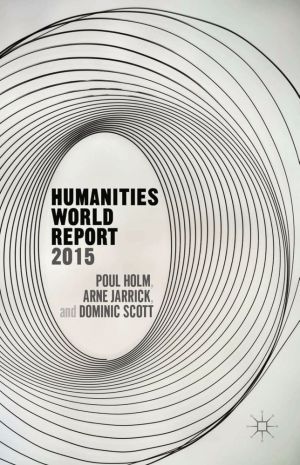Digital Technology and the Practices of Humanities Research
by Jennifer Edmond
DescriptionTable of ContentsDetailsHashtagsReport an issue
This diverse set of essays demonstrate the importance of asking such questions, bringing together established and emerging scholars from a variety of disciplines, at a time when data is increasingly being incorporated as an input and output in humanities sources and publications. Major themes addressed include the changing nature of scholarly publishing in a digital age, the different kinds of 'gate-keepers' for scholarship, and the difficulties of effectively assessing the impact of digital resources. The essays bring theoretical and practical perspectives into conversation, offering readers not only comprehensive examinations of past and present discourse on digital scholarship, but tightly-focused case studies.
This timely volume illuminates the different forces underlying the shifting practices in humanities research today, with especial focus on how humanists take ownership of, and are empowered by, technology in unexpected ways. Digital Technology and the Practices of Humanities Research is essential reading for scholars, students, and general readers interested in the changing culture of research practices in the humanities, and in the future of the digital humanities on the whole. 






Book Description
How does technology impact research practices in the humanities? How does digitisation shape scholarly identity? How do we negotiate trust in the digital realm? What is scholarship, what forms can it take, and how does it acquire authority?This diverse set of essays demonstrate the importance of asking such questions, bringing together established and emerging scholars from a variety of disciplines, at a time when data is increasingly being incorporated as an input and output in humanities sources and publications. Major themes addressed include the changing nature of scholarly publishing in a digital age, the different kinds of 'gate-keepers' for scholarship, and the difficulties of effectively assessing the impact of digital resources. The essays bring theoretical and practical perspectives into conversation, offering readers not only comprehensive examinations of past and present discourse on digital scholarship, but tightly-focused case studies.
This timely volume illuminates the different forces underlying the shifting practices in humanities research today, with especial focus on how humanists take ownership of, and are empowered by, technology in unexpected ways. Digital Technology and the Practices of Humanities Research is essential reading for scholars, students, and general readers interested in the changing culture of research practices in the humanities, and in the future of the digital humanities on the whole.
This open book is licensed under a Creative Commons License (CC BY). You can download Digital Technology and the Practices of Humanities Research ebook for free in PDF format (21.0 MB).
Table of Contents
Acknowledgements
Notes on the Contributors
Chapter 1
Introduction: Power, Practices, and the Gatekeepers of Humanistic Research in the Digital Age
Chapter 2
Publishing in the Digital Humanities: The Treacle of the Academic Tradition
Chapter 3
Academic Publishing: New Opportunities for the Culture of Supply and the Nature of Demand
Chapter 4
The Impact of Digital Resources
Chapter 5
Violins in the Subway: Scarcity Correlations, Evaluative Cultures, and Disciplinary Authority in the Digital Humanities
Chapter 6
'Black Boxes' and True Colour - A Rhetoric of Scholarly Code
Chapter 7
The Evaluation and Peer Review of Digital Scholarship in the Humanities: Experiences, Discussions, and Histories
Chapter 8
Critical Mass: The Listserv and the Early Online Community as a Case Study in the Unanticipated Consequences of Innovation in Scholarly Communication
Chapter 9
Springing the Floor for a Different Kind of Dance: Building DARIAH as a Twenty-First-Century Research Infrastructure for the Arts and Humanities
Chapter 10
The Risk of Losing the Thick Description: Data Management Challenges Faced by the Arts and Humanities in the Evolving FAIR Data Ecosystem
Index
Book Details
Title
Digital Technology and the Practices of Humanities Research
Subject
Science and Mathematics
Publisher
Open Book Publishers
Published
2020
Pages
296
Edition
1
Language
English
ISBN13
9781783748396
ISBN10
1783748397
ISBN13 Digital
9781783748419
ISBN10 Digital
1783748419
PDF Size
21.0 MB
License

Related Books

The first of its kind, this Open Report is a first step in assessing the state of the humanities worldwide. Based on an extensive literature review and enlightening interviews the book discusses the value of the humanities, the nature of humanities research and the relation between humanities and politics, amongst other issues....

This book is open access, which means that you have free and unlimited access.This book analyses and discusses the recent developments for assessing research quality in the humanities and related fields in the social sciences. Research assessments in the humanities are highly controversial and the evaluation of humanities research is delicate. Whi...

The increasing capacity of digital networks and computing power, together with the resulting connectivity and availability of "big data", are impacting financial systems worldwide with rapidly advancing deep-learning algorithms and distributed ledger technologies. They transform the structure and performance of financial markets, the serv...

In this updated edition of a groundbreaking text, concepts such as energy return on investment (EROI) provide powerful insights into the real balance sheets that drive our "petroleum economy." Hall and Klitgaard explore the relation between energy and the wealth explosion of the 20th century, and the interaction of internal limits to grow...

This book analyses Iberian expansion by using knowledge accumulated in recent years to test some of the most important theories regarding Europe's economic development. Adopting a comparative perspective, it considers the impact of early globalization on Iberian and Western European institutions, social development and political economies. In ...

David Harvey's The Condition of Postmodernity rationalised capitalism's transformation during an extraordinary year: 1989. It gave theoretical expression to a material and cultural reality that was just then getting properly started - globalisation and postmodernity - whilst highlighting the geo-spatial limits to accumulation imposed by o...

